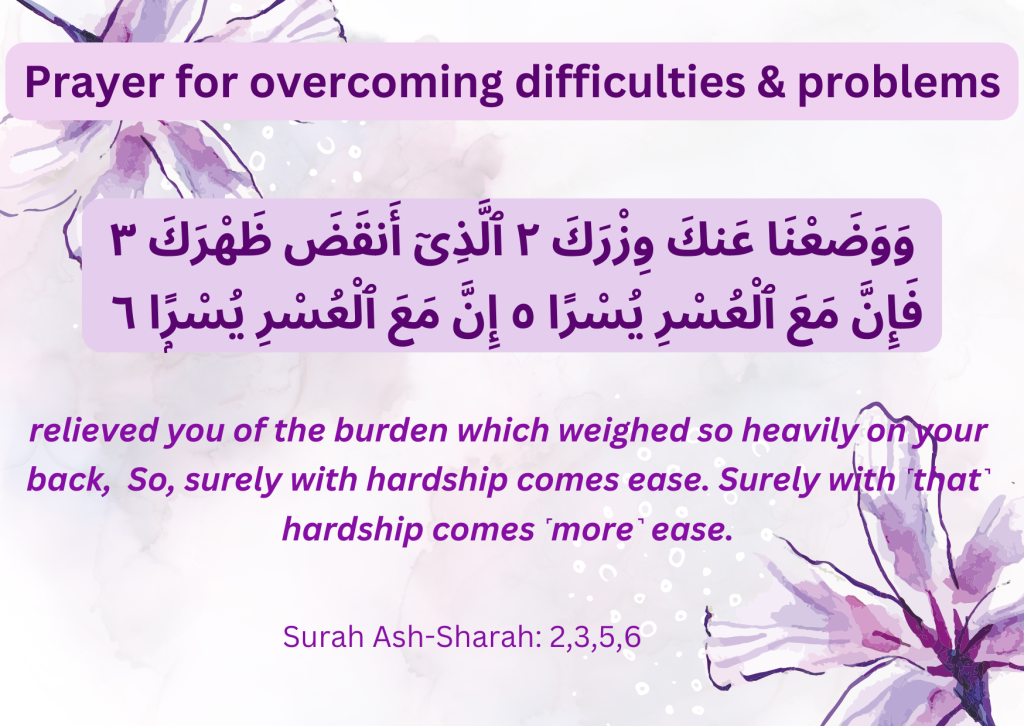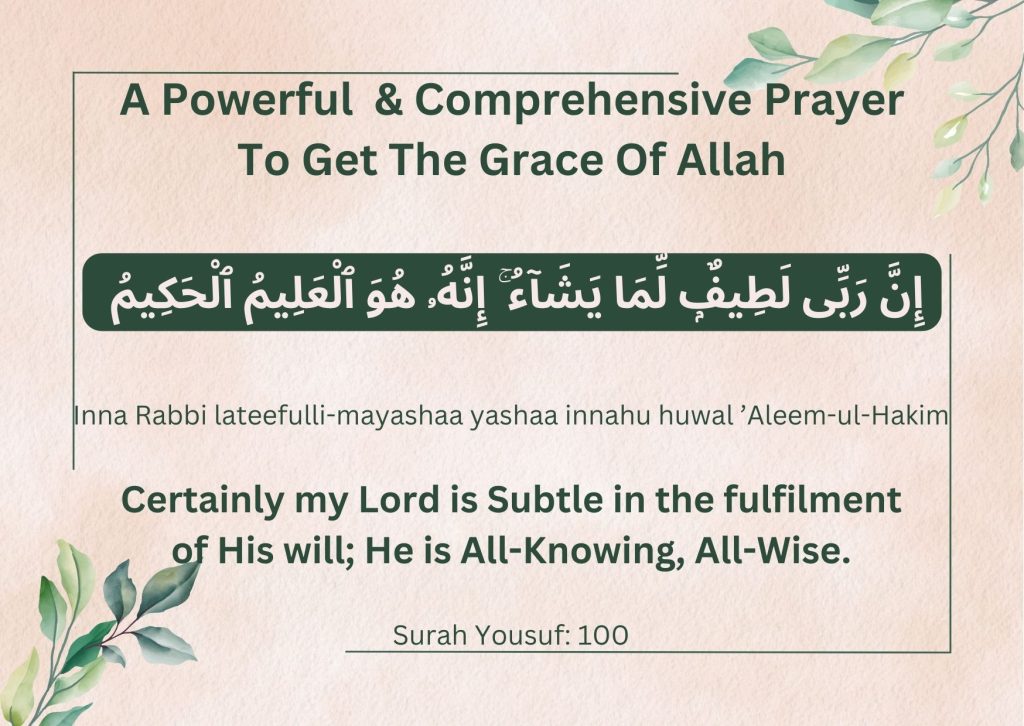
Introduction of the prayer:
This prayer is from Surah Ash-Sharah or Al-Insharah: verse: 2,3,5,6. This Surah is concerned with the special favours that Allah Kareem has bestowed upon His Prophet (pbuh). Here, we try to understand briefly the meaning of the prayer.
وَوَضَعْنَا عَنكَ وِزْرَكَ , ٱلَّذِىٓ أَنقَضَ ظَهْرَكَ
(And We removed from you your burden that had [ almost ] broken your back)
The commentators of Qur’an has described different meaning of ‘burden'(wizr). Some commentators say that this burden was the burden of his (pbuh) high task and great responsibility of being the Messenger of Allah. Some narrations tell that his hair became grey because of this burden.
Holy Prophet ﷺ is reported to have said that the following verse has made me old:
فَاسْتَقِمْ كَمَا أُمِرْتَ
‘So, stand firm – as you have been commanded [ 11:112] ‘
Some of the commentators say that this burden refers to the effect of revelation. It weighed heavily on him in the initial stages of the Prophethood. He was saddled with a nerve-racking and back-breaking task of raising [ a morally degenerated people ], through propagation of Tauhid and elimination of kufr and shirk, [ from the depths of moral turpitude to the peaks of spiritual excellence, and then through them to cleanse and purify the whole of mankind of the dross of iniquity, ignorance and superstition ]. (Tafsir Ibn Kathir)
These verses were a pleasant news for him (pbuh) that Allah Kareem had up lifted his burden which was weighing down his back.
فَإِنَّ مَعَ ٱلْعُسْرِ يُسْرًا- إِنَّ مَعَ ٱلْعُسْرِ يُسْرًۭا
So, surely with hardship comes ease.Surely with ˹that˺ hardship comes ˹more˺ ease.
This is a very relaxing verse of the Holy Qur’an. Allah informs that with difficulty there is ease, and then He reaffirms this information (by repeating it). Sayyidna Hasan Al-Basri (رح) reports that once the Holy Prophet ﷺ emerged from his home in a very happy mood and, giving cheerful news to his Companions on the basis of the current verse, said: “One hardship cannot overcome twofold ease”( Tafseer M’arif ul Qur’an)
This verse refers to the hardships of the Prophet (pbuh) and his Companions. They had to face a great opposition. They had to live in Shai’ab Abu Talib for three years in very critical conditions. He (pbuh) had to face a lot of difficulties and troubles in his mission but he and his Companions experienced a manifold ease after facing difficulties. If some one has to face any trouble and difficulty in life he should not be despair of His mercy. He Almighty surely will grant ease and comfort to him.
Virtues & benefits of prayer:
1- Ease in difficulties:
Reciting this prayer brings ease and comfort in times of hardship and trouble.
2- Releases sorrow:
Surah Ash-Sharah mentions special favours upon Prophet Muhammad (pbuh). It revealed to give a cheerful news to the Prophet (pbuh) when he was facing hard time of his mission. Some one who is facing grief and sorrow in life its recitation will shower peace and delight.
In a Hadith, the Holy Prophet (pbuh) said:
one who recites Surah Inshirah is similar to the one who has met Prophet Muhammad (S) and, if grieving, God would remove their sadness. (Majma’ al-Bayan, vol. 10, p. 387)
3- Healing power:
The recitation of this prayer has the the power to remove stress and anxiety. It also contains healing effects against any illness.
- It is best for healing from chest and heart pain.
- Its regular and abundant recitation will save from diseases.
- It will be beneficial in sea travelling.
- Its recitation is beneficial for child birth.
- The recitation of Surah Alam Nashrah or Surah AshSharah is helpful in removing kidney stone and urine blockage.
- The recitation of Surah Al-Insharh is beneficial in increasing memory.
4- Beneficial for eye sight:
It is said by some Islamic scholars that its recitation is beneficial for eye sight. It has been reported that the Prophet (pbuh) said: Whoever recites in the Fajr Ash-Sharh (Surah 94) and Al-Feel (Surah 105) will never become blind. (Al Da’eefa 67)




